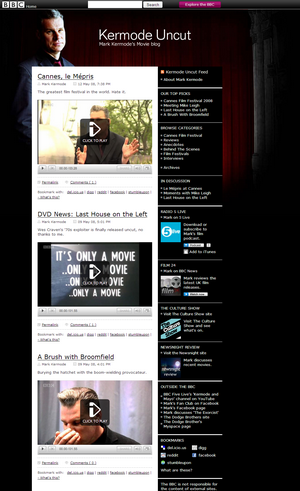Did you know the House of Lords is currently inviting opinions on how it, and Parliament generally, can relate better to the public? No? Neither did I, which kind of proves something in itself.
It’s the Lords’ Information Committee, it’s called People And Parliament… and it closes in two days. The deadline for full written submissions passed on 5 May. Having bumped into details about it earlier today, I’ve been looking at the transcripts of an April session featuring such luminaries as Ben Hammersley and Tom Loosemore. It was a feisty session at times – listen to it here. I was particularly taken by one contribution by Tom, which I will probably find myself quoting in business meetings to come.
I used to run the BBC’s message boards and forums and it is a thankless task because you end up spending millions of pounds censoring people, and I fear you will do the same, if you are successful. I do not think you will be successful as being the home for those national debates, a genuinely democratic cross-section of the country coming along and discussing issues in a constructive way. I do not think Parliament’s website itself will ever be the home for that debate.
Having said that, what I think the Web does do is open up all sorts of possibilities for you, as representatives in this place, to go out and consult. So if you want to go and find out what people think about immigration, there are many, many places on the Web where there are constructive conversations about immigration and you can go and join in and listen there. You do not have to insist that everybody comes here. That is how the place has always worked. It does not always rely on five people sat in front of a table talking to you.
So I would encourage you as Members and as Lords of this place to go out and use the Web to engage with the different issues and avoid like the plague hosting conversations on your own website. When I left the BBC I left them with a document which said, ‘Do not host conversations on the BBC’s website, link to them instead.’
There’s not a little irony, then, in looking at the forum set up by Parliament to discuss the subject: only to find a handful of responses, whose quality is, to be frank, mixed. Not for the first time then, Tom Loosemore shows he knows what he’s talking about. He also made some fine points about making Parliament’s data easily reusable as a first step towards wider engagement, and handled questions about sustainability with great tact. I heard his name mentioned as a possible Director of Digital Engagement; for the record, I think he’d have been fantastic.
There are two more meetings scheduled: one happens to be tomorrow, and features none other than Tom Watson. It’ll be streamed live online, and archived for later viewing: you’ll find it here.
 I never ‘got’
I never ‘got’  I blame the Tories. They brought us ‘
I blame the Tories. They brought us ‘ I’ve always been a big fan of
I’ve always been a big fan of